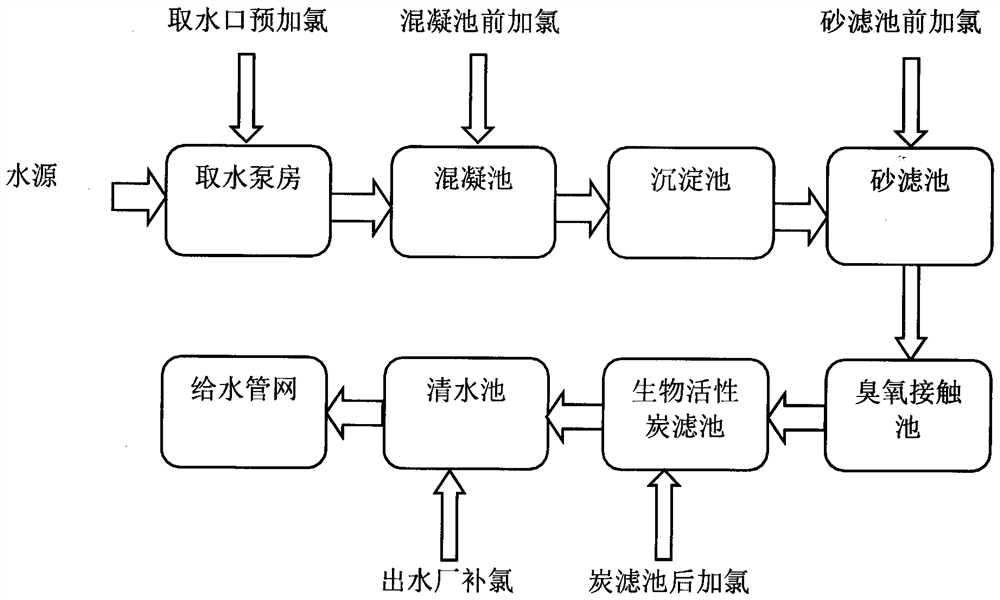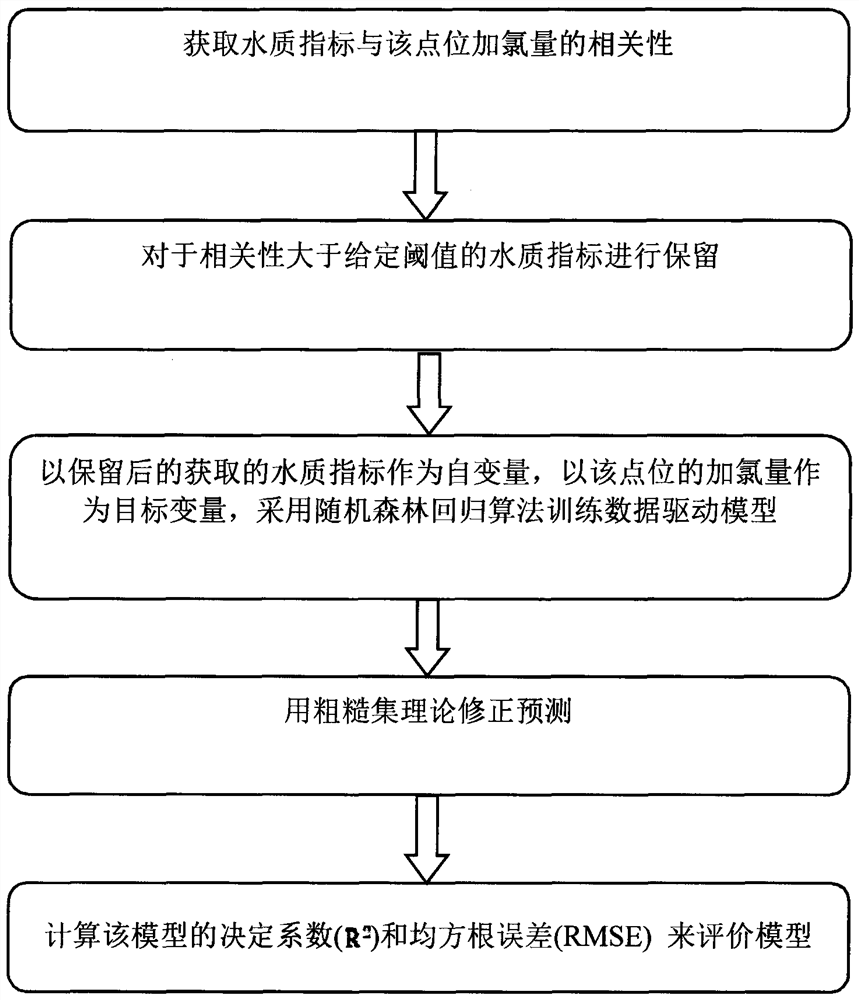Data driving method for multi-point chlorination in drinking water treatment process
A drinking water treatment, data-driven technology, applied in the direction of sterilization/microdynamic water/sewage treatment, computational theoretical chemistry, instruments, etc., can solve the problems of coordinated control of chlorine dosing without chlorine dosing point, lack of judgment of chlorine dosing, etc. , to avoid excessive chlorine content, improve water quality, and reduce fluctuations
- Summary
- Abstract
- Description
- Claims
- Application Information
AI Technical Summary
Problems solved by technology
Method used
Image
Examples
Embodiment Construction
[0024] The (1) step, the concrete steps of water intake pre-chlorination are as follows:
[0025] Step 1. The raw water quality indicators (turbidity, oxygen consumption, pH value, water temperature, ammonia nitrogen, dissolved oxygen, electrical conductivity, algae density) collected in the historical database and the amount of pre-chlorination at the water intake are used as data set;
[0026] Step 2, using the Pearson correlation coefficient method to calculate the amount of pre-chlorination at the water intake in the data set and the raw water quality indicators (turbidity, oxygen consumption, pH value, water temperature, ammonia nitrogen, dissolved oxygen, conductivity, algae density) relevance;
[0027] The calculation formula of Pearson correlation coefficient:
[0028]
[0029] In the formula, represent the mean values of X and Y, respectively. The value of P is between -1 and 1. The larger the absolute value of P, the higher the correlation between variable ...
PUM
 Login to View More
Login to View More Abstract
Description
Claims
Application Information
 Login to View More
Login to View More - R&D
- Intellectual Property
- Life Sciences
- Materials
- Tech Scout
- Unparalleled Data Quality
- Higher Quality Content
- 60% Fewer Hallucinations
Browse by: Latest US Patents, China's latest patents, Technical Efficacy Thesaurus, Application Domain, Technology Topic, Popular Technical Reports.
© 2025 PatSnap. All rights reserved.Legal|Privacy policy|Modern Slavery Act Transparency Statement|Sitemap|About US| Contact US: help@patsnap.com



